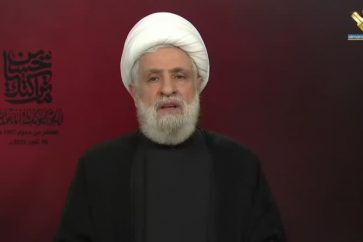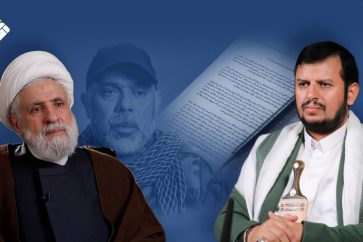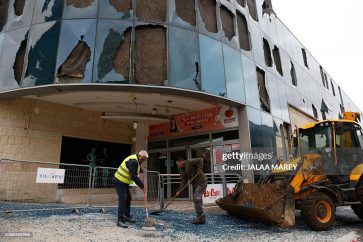Head of Hezbollah’s parliamentary bloc leader Mohammad Raad has cautioned that addressing Lebanon’s current crisis requires careful, measured action and a firm commitment to national sovereignty and dignity.
In an interview with Radio Al-Nour, Raad emphasized that solving Lebanon’s political and security challenges must be grounded in “the national interest—protecting sovereignty and the dignity of its people—without succumbing to American, Israeli, or any other foreign pressure.”
Resistance Facing Misconceptions, Not Defeat
MP Raad condemned internal political actors whom he accused of exploiting foreign pressure to force “new internal power balances” in their favor. He argued these parties are emboldened by Israeli aggression and US backing under the illusion that the resistance has weakened.
“This notion is false, misleading, and part of a propaganda campaign aimed at conditioning public opinion toward surrender,” Raad said.
Raad reiterated that Hezbollah accepted the November 27, 2024, ceasefire from “a position of strength,” asserting that Israel’s planned ground incursion failed after 66 days of conflict.
“The resistance was not defeated on the battlefield. It emerged victorious and willingly accepted the ceasefire.”
He noted that a significant regional shift occurred just ten days later, with developments in Syria altering the strategic landscape.
“This emboldened political forces aligned with US-backed Israeli hostility to re-enter the Lebanese scene and push for internal realignments,” Raad explained.
August 5 Arms Decision a Violation of National Accord
Raad strongly criticized the August 5 government decision that classifies all weapons outside state control as illegitimate. He said the move contradicts Lebanon’s National Pact, the Taif Agreement, and the country’s internal balance.
“That decision represents a failure in national responsibility. Forty years of deterrence imposed on Israel by the resistance cannot be erased with a single decision.”
He condemned what he described as a betrayal of the sacrifices made by thousands of resistance martyrs. “Labeling their weapons as illegitimate in a moment of political weakness or under foreign pressure is a national lapse,” he said.
Raad questioned whether national sovereignty could be achieved by “turning the struggle from one against Israeli aggression into an internal Lebanese conflict.”
Post-September 5 Step a Political Retreat
Commenting on the recent parliamentary session, Raad said the September 5 outcome signaled a retreat by many in government who realized the earlier arms decision had reached a dead end.
“They found a formula to delay implementation without fully withdrawing from their decision. It’s not a solution—it’s simply a pause,” Hezbollah’s MP asserted.
Resistance Arms Legitimacy
Raad asserted that Hezbollah’s weapons are “more legitimate than the government itself,” citing the group’s right to defend Lebanese land under national and international law.
“As long as Israeli occupation and aggression persist, no legal or sovereign argument can justify disarming the resistance,” he stated.
Raad added that the foundational national understanding was to safeguard Lebanon’s sovereignty collectively.
“Those in power now say the pressure is too great. Others before them faced greater pressure and didn’t concede. Hezbollah has exercised maximum restraint in the face of provocations and incitement, guided by strength, not weakness.”
Strategic Defense Dialogue Must Be Sovereign-Led
MP Raad stressed the need for a calm, internal dialogue to develop a national defense strategy—one that clearly defines the roles of both the army and the resistance.
“That dialogue must take place independently, without threats, occupations, or foreign interference, and under a truly sovereign national authority,” he said.
He warned that recent provocations aimed to drag Hezbollah into domestic unrest. “But we refused to act impulsively and avoided actions that would endanger civil peace.”
No Western Pressure Will Undermine Hezbollah’s Role
Raad dismissed efforts by political opponents banking on US and Israeli support to weaken Hezbollah.
“This pressure won’t strip Hezbollah of its legitimate right to defend the country,” he said. “The resistance will not surrender its arms under foreign dictates.”
Still, Raad expressed openness to dialogue on the role of arms—if sovereignty is achieved first.
“We must first unify our position against the Israeli occupation and hold those who offered guarantees accountable for ensuring Israel respects the ceasefire and withdraws.”
“Everyone should be pressuring those who made the promises—not the resistance that defended this land,” Hezbollah’s MP concluded.
Source: Al-Manar Website




